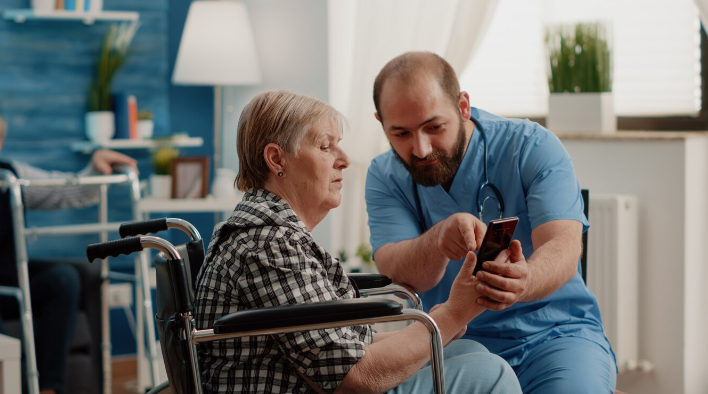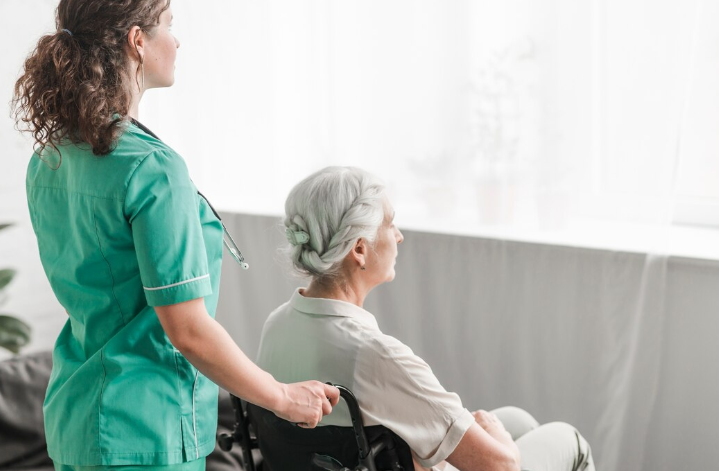Maintaining strong social connections is vital for overall well-being, especially as we age. Numerous studies have shown that staying socially engaged can significantly reduce the risk of developing dementia. For seniors in Bergen County, fostering meaningful relationships and staying connected to the community is a powerful way to protect cognitive health. By combining the benefits of home care services with social activities, seniors can enjoy better mental and emotional well-being while reducing their dementia risk.
1. The Role of Social Interaction in Cognitive Health
Social interactions stimulate the brain, keeping it active and engaged. Conversations, group activities, and shared experiences help seniors use various cognitive functions, including memory, reasoning, and problem-solving. These activities promote neural connections, which are essential for brain health and can delay or reduce the onset of dementia symptoms.
Companion care services play a critical role in ensuring seniors have regular opportunities for social engagement. Trained caregivers provide meaningful companionship, whether through conversations, games, or shared hobbies, helping seniors feel connected and valued.
2. Emotional Support and Stress Reduction
Loneliness and social isolation can increase stress levels, which negatively impact brain health. Chronic stress leads to the release of harmful hormones that can damage brain cells, contributing to cognitive decline. By maintaining strong social connections, seniors experience reduced stress and improved emotional health, which protects against the development of dementia.
Professional caregivers from a licensed home care agency provide emotional support alongside practical assistance. This combination of care not only meets physical needs but also addresses the emotional aspects of aging, creating a holistic approach to well-being.
3. Encouraging Social Engagement at Home
Seniors who receive dementia care at home in Bergen County benefit from familiar surroundings that encourage comfort and participation in daily activities. Caregivers help create opportunities for social interaction by involving seniors in family events, facilitating video calls with loved ones, or participating in group activities within the community.
With the support of home care solutions, seniors can remain socially active even if mobility or health challenges make it difficult to leave the house. Caregivers ensure seniors stay connected to friends and family, helping them maintain the relationships that matter most.
4. Group Activities and Community Involvement

Participating in group activities, such as book clubs, fitness classes, or senior centers, is an excellent way to strengthen social connections. These activities provide opportunities for seniors to meet new people, share experiences, and build relationships. Socializing in group settings also enhances a sense of belonging and purpose, which are crucial for mental well-being.
Caregivers from top home care agencies often assist seniors in accessing these opportunities by providing transportation and accompanying them to events. This level of support ensures that seniors can engage in community activities without worry, contributing to their overall happiness and health.
5. The Connection Between Physical and Social Health
Physical activity and social engagement often go hand in hand. Group exercise classes, dance events, or outdoor walks with friends promote both physical and mental health. Regular physical activity has been linked to a lower risk of dementia, and pairing it with social interaction amplifies these benefits.
Professional caregivers offering in-home health care can help seniors incorporate physical activity into their daily routines while encouraging social interactions. Whether they join a walking group or attend a fitness class, these activities keep seniors active and engaged.
6. The Role of Professional Caregivers in Building Social Connections
Maintaining social connections can be challenging for seniors who live alone or have limited mobility. This is where professional caregivers play a vital role. Trained caregivers not only provide essential support with daily tasks but also serve as companions who engage in meaningful interactions. This emotional connection reduces loneliness and helps seniors feel more connected to the world around them.
Additionally, 24-hour in-home care ensures that seniors who need constant supervision still have access to social engagement. Caregivers are there to listen, share stories, and foster a sense of connection, even for seniors with advanced dementia or other health concerns.
7. Specialized Dementia Care and Social Interaction
Seniors with dementia often face unique challenges when it comes to socializing. However, social engagement remains crucial for maintaining their cognitive and emotional health. Personalized dementia care focuses on creating structured routines that include meaningful social activities tailored to the individual’s abilities and preferences.
Caregivers trained in dementia care services provide specialized support, helping seniors with memory-related conditions stay socially active. By encouraging participation in familiar activities and fostering interactions with loved ones, caregivers create opportunities for seniors to feel connected and valued.
8. Fostering Social Connections Within Families
Family involvement is a key aspect of maintaining social connections for seniors. Regular visits, shared meals, and quality time spent with loved ones strengthen family bonds while supporting the senior’s mental and emotional health. For families who need additional support, home care agencies provide the assistance necessary to facilitate these connections.
Caregivers can help coordinate family events, assist with transportation, and even facilitate virtual visits for long-distance family members. By bridging the gap between seniors and their loved ones, caregivers help create a supportive network that enhances overall well-being.
How Live Easy Home Care Strengthens Social Connections to Reduce Dementia Risk

At Live Easy Home Care, we understand the critical role social connections play in reducing dementia risk and promoting overall well-being. Our professional and certified caregivers in Bergen County are dedicated to fostering meaningful interactions and creating opportunities for seniors to stay engaged and connected.
We offer a range of home care services, including companion care services, to ensure your loved one receives emotional and social support. Whether it’s engaging in daily activities, attending community events, or facilitating family connections, we are here to help your loved one thrive. For those requiring continuous care, our 24-hour in-home care provides round-the-clock attention and companionship.
At Live Easy Home Care, we believe that staying connected is essential for a fulfilling life. Let us help your loved one build and maintain the social connections that matter most.
Contact us today to learn how we can support your family.





